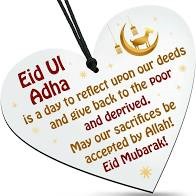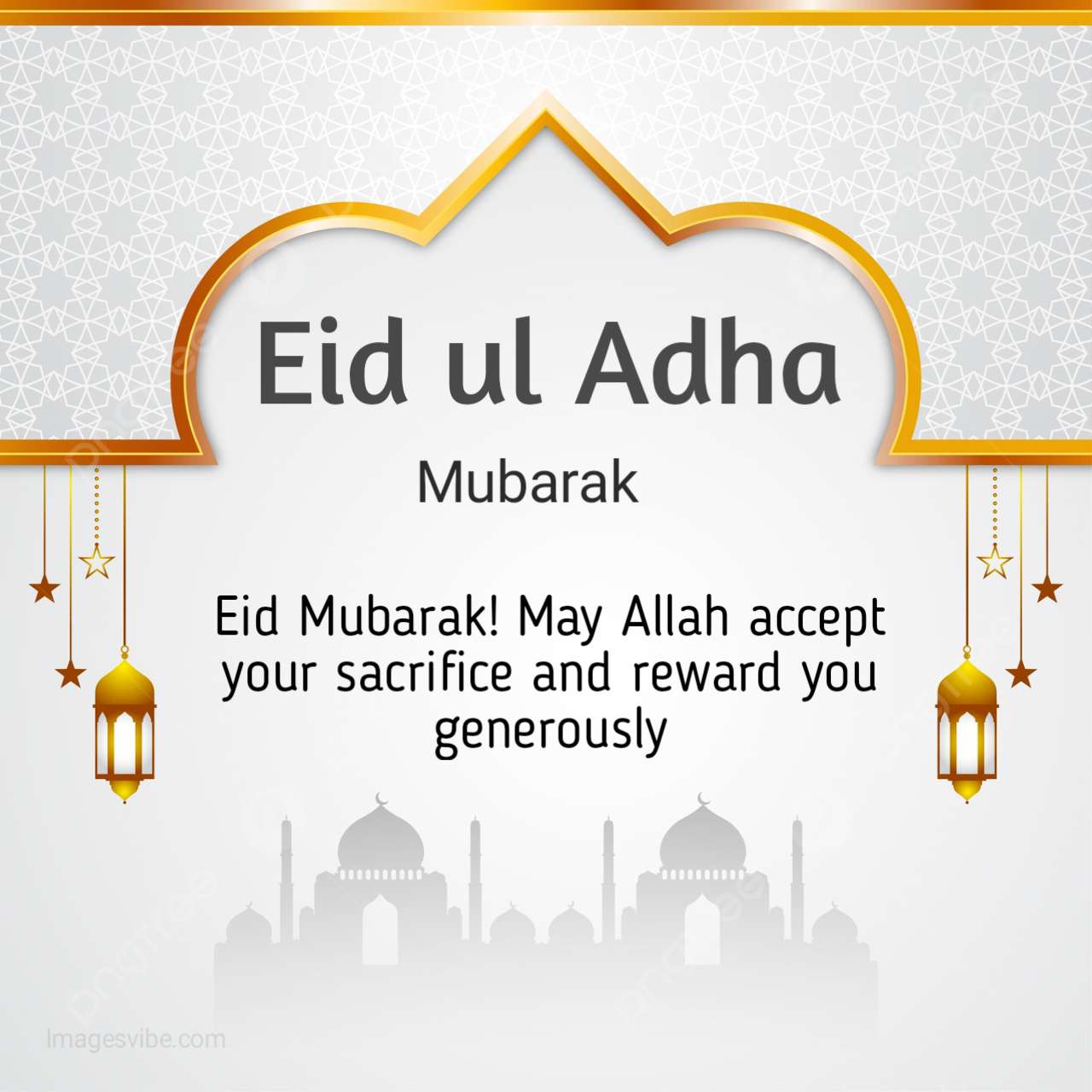Eid-ul-Adha (Eid of sacrifice) this year was celebrated today, on Sun 16th June, 2024.
There are two key Eid’s (Celebration Festivals) in Islam: Eid-ul-Fitr, which signifies the completion of the Holy Month of Ramadan (which was celebrated in April this year); and Eid-ul-Adha, the greater Eid, which follows the completion of the annual Hajj pilgrimage, at the time of Qurbani (sacrifice).
Eid al-Adha literally translates as “Feast of the Sacrifice”. This is because it honours the famous story of the willingness of the Prophet Ibrahim – known in the Christian Old Testament as Abraham – to sacrifice his son as an act of obedience to God’s command. Eid ul-Adha celebrates the time when Ibrahim had a dream which he believed was a message from Allah asking him to sacrifice his son Isma’il as an act of obedience to God. The devil tempted Ibrahim by saying he should disobey Allah and spare his son. At the very point of sacrifice, Allah replaced Ismail with a ram, which was to be slaughtered in place of his son. This command from Allah was a test of Prophet Ibrahim’s willingness and commitment to obey his Lord’s command, without question. Therefore, Eid-ul-Adha means the festival of sacrifice.
To remember Ibrahim’s story, Muslims ritually sacrifice animals – normally sheep, goat, lamb, cow or a camel – on Eid al-Adha. A third of the meat is consumed by the family who perform the sacrifice and the rest is given to the poor.
The purpose of sacrifice in Eid al-Adha is not about shedding of blood just to satisfy God. It is about sacrificing something a Muslim loves in order to advance the festival’s message. It is also about donating to the poor and sharing meat with them as they usually don’t have access to meat throughout the year. Not all Muslims sacrifice an animal themselves. They can buy special meat from shops and donate that. Or they can donate money to charities that give special meat to others. Muslims also give money to charity so that poor people can celebrate too.
All these ways honour the story of Ibrahim. Taking care of others is a very important part of being a Muslim. The first day of the Eid includes a prayer known as “Salat ul-Eid” which is an important prayer to mark the beginning of the celebration. This prayer is usually held in open prayer yards called (Eid Mussala) in the morning of the first day of Eid prior to sacrifice ceremony. During Eid, you can find people dressed in their finest attire congratulating each other with special Eid greetings and visiting their relatives. Sharing a meal with family and friends plays an important role on Eid al-Adha. The dishes that are eaten vary according to culture, but meat-based meals of kebabs, biryani and curries are very common.
Eid ul-Adha is a public holiday in Muslim countries. In 2024, Eid ul-Adha will begin on the evening of Saturday 15th June and end on the evening of Wednesday 19th of June.
Muslims wish each other as Eid Mubarak (which means have a blessed Eid) on Eid days.


![Eid UL Adha Mubarak Status [Stories] for WhatsApp, Facebook 2023](https://ehsasprogram.pk/wp-content/uploads/2023/06/Eid-UL-Adha-Mubarak-Status-2023.jpg)
